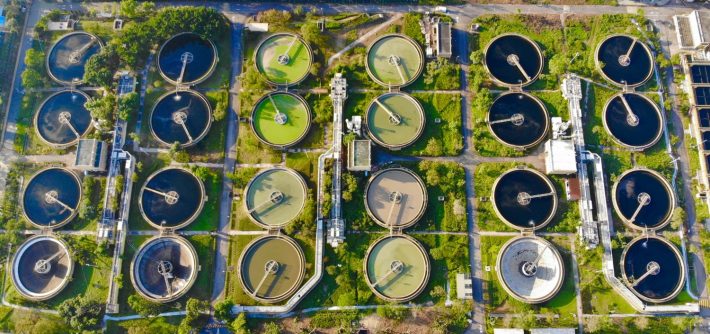From sewage to water consumption: aquatic ecology during coronavirus
Aquatic ecologists were among those who rapidly responded to the coronavirus epidemic, with many examples given at the annual conference of the BES Special Interest Group. Arron, Lyndsey and Alfred relished a field rising to a new challenge.

Innovative solutions for coronavirus testing and tracing are urgently needed, given COVID-19’s high infection rate and lack of treatments. Sewage might not be the first area people think of in tackling this pandemic. However, aquatic ecologists were quick to jump in where others might fear to tread as they responded swiftly to the challenge of the new virus. Universities, government agencies and water companies have now come together to start monitoring COVID-19 viral concentrations in sewage.
So how exactly could we monitor COVID-19 in sewage? A new approach being investigated scans wastewater for viral RNA. It’s a potential population-level monitoring tool which could even detect those who are asymptomatic and pre-symptomatic for COVID-19.
The Centre for Ecology and Hydrology and Imperial College London are spearheading this research, which is funded by the UK Natural Environment Research Council. The programme aims to determine whether COVID-19 screening in sewage is a useful method for UK government agencies to apply. Imperial researchers are also investigating potential sources and sinks of infection in river networks, as untreated sewage regularly ends up in our rivers. However, this research is just beginning and there is still much to learn.
This was one example presented at this year’s BES Aquatic Ecology SIG Meeting (BESAG2020), which featured a range of aquatic research that emerged during the pandemic. Guy Woodward of Imperial provided a comprehensive overview of the research he and his colleagues are conducting on wastewater. It was inspiring and heartening to hear about the rapid scientific responses to COVID-19 and the associated challenges from leaders in freshwater biology who have driven these efforts forward. There were also discussions about potential citizen science programmes that could be designed to aid monitoring of COVID-19 in the future.
The conference also heard about the importance of chalk rivers, with 85% of these precious flowing, freshwater systems found in England. Kate Heppell of Queen Mary University of London is using digital technologies to support water management in chalk stream tributaries of the River Chess (ChessWatch) that stretches through Buckinghamshire and Hertfordshire. Kate explained how we can achieve a better understanding of how to manage and increase the resilience of these vital waterbodies that support both people and biodiversity.
There was plenty of opportunity for aquatic researchers at all career stages to engage and network with each other throughout the online conference. Each day, “R” workshops with Andrew Beckerman (University of Sheffield) and Chris Hassall (University of Leeds) were followed by seminars given by early-career researchers on Twitter, allowing a different type of discussion between speaker and audience.
Arron Watson, Lynsey Harper and Alfred Burian are early-career ecologist representatives on the Aquatic Ecology Special Interest Group.
BES Aquatic Ecology Special Interest Group
For the latest news, future meetings, and job advertisements, follow the Aquatic Ecology SIG on Twitter, Facebook or join the mailing list by emailing Veronica Edmonds-Brown.
Like what we stand for?
Support our mission and help develop the next generation of ecologists by donating to the British Ecological Society.